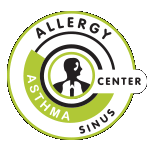COLD VS ALLERGIES
Stuffy Nose, Sniffles, Cough, Congestion?
You could have a cold. Or it could be allergies. How do you know?
Cold Symptoms
Cough: Often
Aches: Sometimes
Fatigue: Sometimes
Fever: Rarely
Itchy, watery eyes: Rarely
Sore throat: Often
Runny or stuffy nose: Often
Allergy Symptoms
Diagnosing Allergies
To see if you have allergies, your physician may refer you to an allergist, who will typically perform a skin test. This test is a series of small scratches made on your back. These scratches contain drops of specific allergens. If you’re allergic, a small bump will appear. You may be itchy after the test, but a quick application of anti-itch lotion will calm any urges to scratch. Another way to test for allergies is through a blood test or RAST (radioimmunoassay). Antibodies in your blood will adhere to specific allergens if you’re allergic. Those antibodies are identified in your sample and tested for sensitivity.
Treating Allergies
The best way to treat allergies is to avoid the trigger for your reaction. Unfortunately, that’s not easy. You can remove carpet, take down curtains, and not eat certain foods; but grass pollen, tree pollen, your family pet…those things are simply part of your day-to-day life. Depending on how severe your allergies are, you may require over-the-counter antihistamines, prescribed medication, and/or nose sprays. But for a possible cure, your allergist is likely to recommend immunotherapy, or allergy shots, which is the best way to build (or decrease your sensitivity).
Facts About Allergy Shots
- It’s the only way to eliminate allergies.
- It’s the only way to get rid of those “feel lousy” symptoms and fatigue.
- It prevents you from getting new allergies.
- It lowers your risk of developing asthma by 15%

